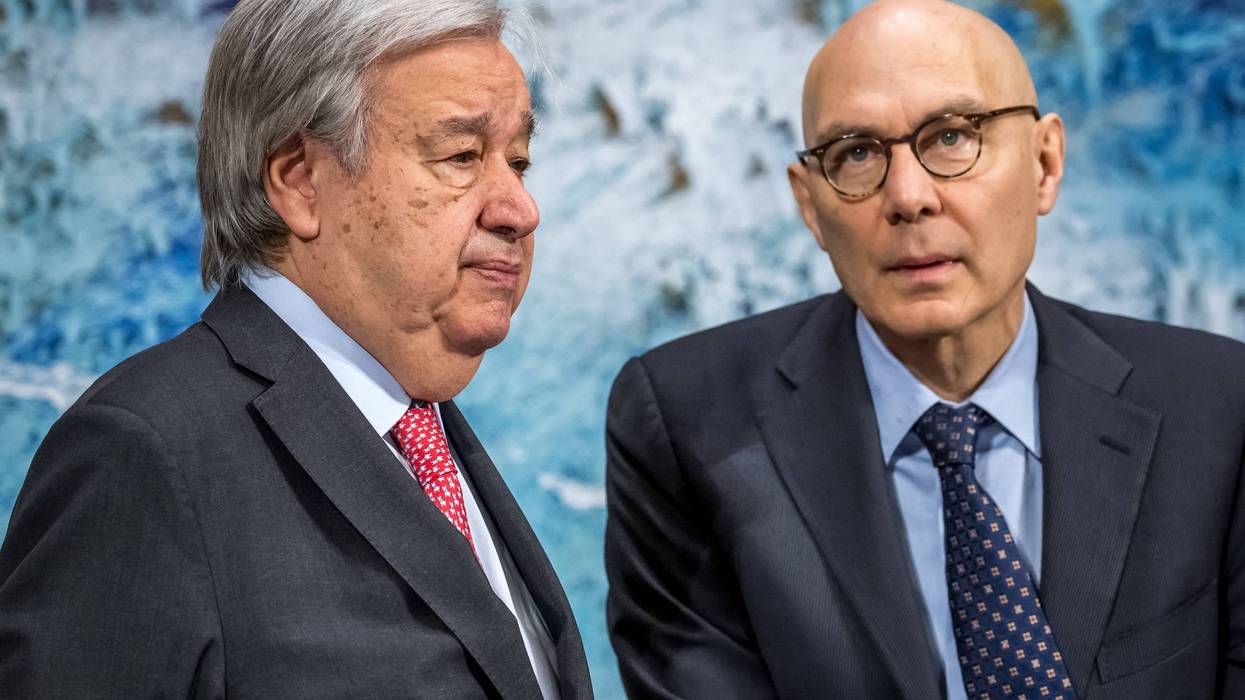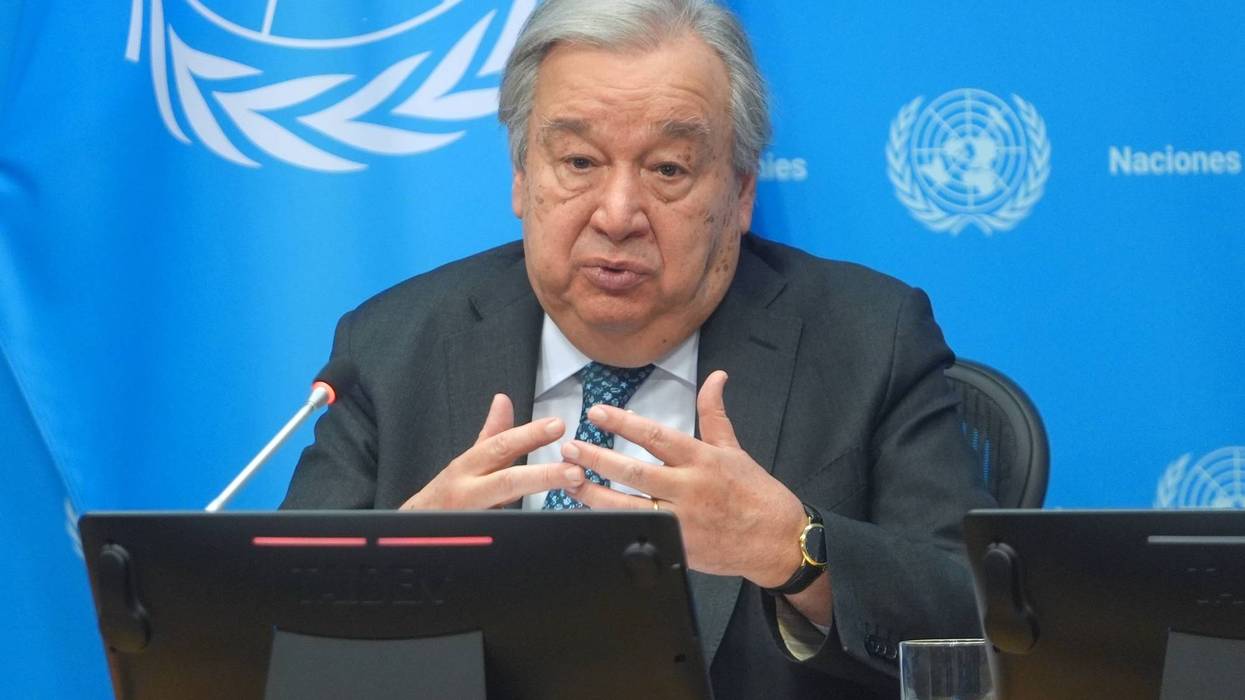UN Leaders Warn Rule of Law Being Replaced by 'Rule of Force'
"We are living in a world where mass suffering is excused away... where humans are used as bargaining chips... where international law is treated as a mere inconvenience," said UN Secretary-General António Guterres.
The secretary-general of the United Nations and the body's top human rights official did not call out world leaders by name as they warned that "impunity has become a contagion" among powerful governments at the opening of the UN Human Rights Council's annual session in Geneva on Monday.
But their comments appeared to allude to numerous recent actions by the Trump administration, whose officials have explicitly dismissed concerns about international law regarding the White House's foreign policy in recent months.
Secretary-General António Guterres warned global officials that "the rule of law is being out-muscled by the rule of force."
"This assault is not coming from the shadows. Or by surprise. It is happening in plain sight—and often led by those who hold the greatest power," said Guterres.
The leader's comments came nearly two months after President Donald Trump ordered an invasion of Venezuela, killing dozens of people, abducting President Nicolás Maduro and his wife and charging them with narcotics trafficking, and pushing to take control of the South American country's oil supply.
That operation as well as the United States' bombings of dozens of boats in the Caribbean Sea and eastern Pacific Ocean in recent months—also ostensibly to fight "narcoterrorism"—have been violations of international law, according to numerous legal experts, with the former violating the prohibition on the use of force in Article 2(4) of the UN Charter.
Trump officials, including Deputy Chief of Staff Stephen Miller, however, have claimed the US has the right to use military force against any country if doing so advances US interests.
"We are living in a world where mass suffering is excused away... where humans are used as bargaining chips... where international law is treated as a mere inconvenience," said Guterres on Monday. "Conflicts are multiplying and impunity has become a contagion. That is not due to a lack of knowledge, tools, or institutions. It is the result of political choices."
The UN has directly condemned other policies by the Trump administration in recent weeks, including Trump's executive order threatening tariffs on any country that provides Cuba with oil as it baselessly accused the island nation's communist government of harboring terrorists, and Guterres has suggested Trump's creation of a "Board of Peace" to govern Gaza is akin to "one power calling the shots."
Guterres mentioned just two specific conflicts: Russia's war on Ukraine and the "blatant violations of human rights, human dignity, and international law in the occupied Palestinian territory," where the US-backed Israel Defense Forces have been waging war on Gaza and Israeli settlers have been carrying out increased violent attacks in the West Bank as Prime Minister Benjamin Netanyahu's government pushes to further illegally annex the territory and make the creation of a Palestinian state impossible.
"The current trajectory is stark, clear, and purposeful: The two-state solution is being stripped away in broad daylight," said Guterres. "The international community cannot allow this to happen."
Regarding Ukraine, which will enter its fifth year of war with Russia on Tuesday and where more than 15,000 civilians have been killed, Guterres said, "It is more than past time to end the bloodshed."
Volker Türk, the UN high commissioner for human rights, added in his own remarks that "domination and supremacy are making a comeback."
"A fierce competition for power, control, and resources is playing out on the world stage at a rate and intensity unseen for the past 80 years," said Türk. "The use of force to resolve disputes between and within countries is becoming normalized."
Türk highlighted how "the gears of global power are shifting", calling for people to band together to protect rights and create "a strong counterbalance to the top-down, autocratic trends we see today".
Some world leaders, he said, are operating as though "they are above the law, and above the UN Charter."
"They claim exceptional status, exceptional danger, or exceptional moral judgement to pursue their own agenda at any cost," he said. "They spread disinformation to distract, silence, and marginalize."
Türk also warned that some leaders appear to "weaponize their economic leverage"—an apparent reference to Trump's decision to drastically cut foreign aid funding and withdraw from dozens of UN organizations last month, putting the international body at risk of "imminent financial collapse," as Guterres said at the time.
"Humanitarian needs are exploding while funding collapses," said Guterres on Monday. "Inequalities are widening at staggering speed. Countries are drowning in debt and despair. Climate chaos is accelerating... Across every front, those who are already vulnerable are being pushed further to the margins. And human rights defenders are among the first to be silenced when they try to warn us."
"In this coordinated offensive, human rights are the first casualty," he added, urging world leaders to "not let power write a new rulebook in which the vulnerable have no rights and the powerful have no limits."
"Let this be the place that helps end the broad and brutal assault on human rights," said Guterres. "Because a world that protects human rights protects itself."


